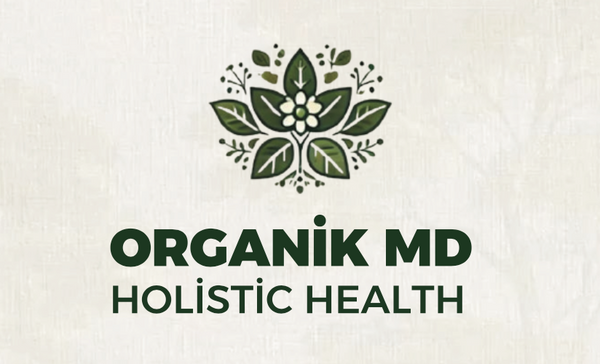As we face the changing seasons and potential health challenges, keeping our immune systems in top shape has become a priority. In naturopathic health, strengthening immunity is about more than just avoiding illness—it's about nurturing resilience so our bodies can handle whatever comes our way. Here are some natural immune boosters to consider, each backed by research and used for centuries to keep immune systems strong.

Elderberry: The Power of Berries
Elderberries have long been revered in herbal medicine for their immune-boosting properties. They’re packed with antioxidants and vitamins that may help reduce the severity and duration of colds and flu. Studies suggest elderberry can inhibit viruses from entering cells, making it a powerful ally in cold and flu prevention.
How to Use It:
Elderberry can be consumed as a syrup, tea, or supplement. Look for high-quality, organic elderberry extracts or make a syrup at home using dried elderberries.

Medicinal Mushrooms: Nature’s Immune Boosters
Medicinal mushrooms like reishi, chaga, and shiitake are gaining popularity for their immune-supportive benefits. These fungi are rich in beta-glucans, compounds that stimulate immune cells and enhance the body's defense mechanisms. Reishi, in particular, is known as the “mushroom of immortality” and may help modulate the immune response, balancing it when under- or overactive.
How to Use It:
Try mushroom extracts in tinctures, teas, or powders. Adding mushroom powders to smoothies or coffee can be a tasty way to boost your intake.

Vitamin C: The Classic Immune Booster
Vitamin C is essential for a healthy immune response and is well known for helping to reduce the duration of colds. As a powerful antioxidant, it protects immune cells from free radical damage, supporting white blood cell function and overall resilience.
Sources:
Include vitamin C-rich foods like citrus fruits, bell peppers, strawberries, and kiwifruit. For an extra boost, consider a natural vitamin C supplement, ideally one derived from whole foods like acerola cherries.

Zinc: The Unsung Hero of Immunity
Zinc is crucial for immune function, aiding in the production of immune cells and helping the body fight infections. Studies show that even a mild deficiency in zinc can impair immune function, so maintaining adequate levels is essential.
Sources:
Foods rich in zinc include pumpkin seeds, lentils, chickpeas, and fortified cereals. Zinc supplements can be a good option, particularly during cold and flu season, but take care not to exceed recommended amounts.

Probiotics: Support the Gut, Support Immunity
Did you know that up to 70% of your immune system is in your gut? Probiotics, the beneficial bacteria in your digestive system, play a key role in immune health. They help balance the gut microbiome, support healthy inflammation levels, and may even enhance the body’s immune response to pathogens.
Sources:
Include probiotic-rich foods like yogurt, kefir, sauerkraut, and kimchi in your diet. Alternatively, consider a high-quality probiotic supplement with diverse strains for comprehensive gut health support.

Garlic: The Antiviral Superfood
Garlic has been used for centuries as a natural remedy for infections. It contains allicin, a compound with potent antiviral and antibacterial properties. Studies suggest that garlic may not only help prevent colds and flu but also shorten the duration of symptoms.
How to Use It:
Add raw or cooked garlic to your meals, or take a garlic supplement. Fresh, raw garlic tends to offer the most health benefits, but it can also be enjoyed roasted for a milder taste.

Adaptogenic Herbs: Stress Relief and Immunity
Chronic stress can weaken the immune system, making us more susceptible to illness. Adaptogens like ashwagandha, holy basil, and astragalus help the body adapt to stress and can enhance immune function. Ashwagandha, for example, supports adrenal health, helping balance stress hormones, while astragalus is traditionally used for long-term immune support.
How to Use It:
Adaptogens can be taken as teas, tinctures, or capsules. Start with a small dose and work with a healthcare provider to determine the right amount for your body.

Vitamin D: The Sunshine Vitamin for Immunity
Vitamin D plays a pivotal role in immune health, helping activate immune cells and regulate the body’s response to infections. Many people have low levels of vitamin D, especially in the winter, so supplementation can be beneficial.
Sources:
Sun exposure is the best natural source of vitamin D, but foods like salmon, egg yolks, and fortified milk also contain it. For those with low sun exposure, a vitamin D supplement may be recommended, especially during colder months.
Incorporating these immune-boosting superfoods and herbs into your routine can go a long way in keeping your defenses strong. As always, consult a healthcare provider before starting any new supplement, especially if you have underlying health conditions. By integrating these natural immune boosters, you’re not just preventing illness—you’re building a foundation for lifelong wellness.
Stay healthy, stay resilient, and give your immune system the natural support it deserves!

